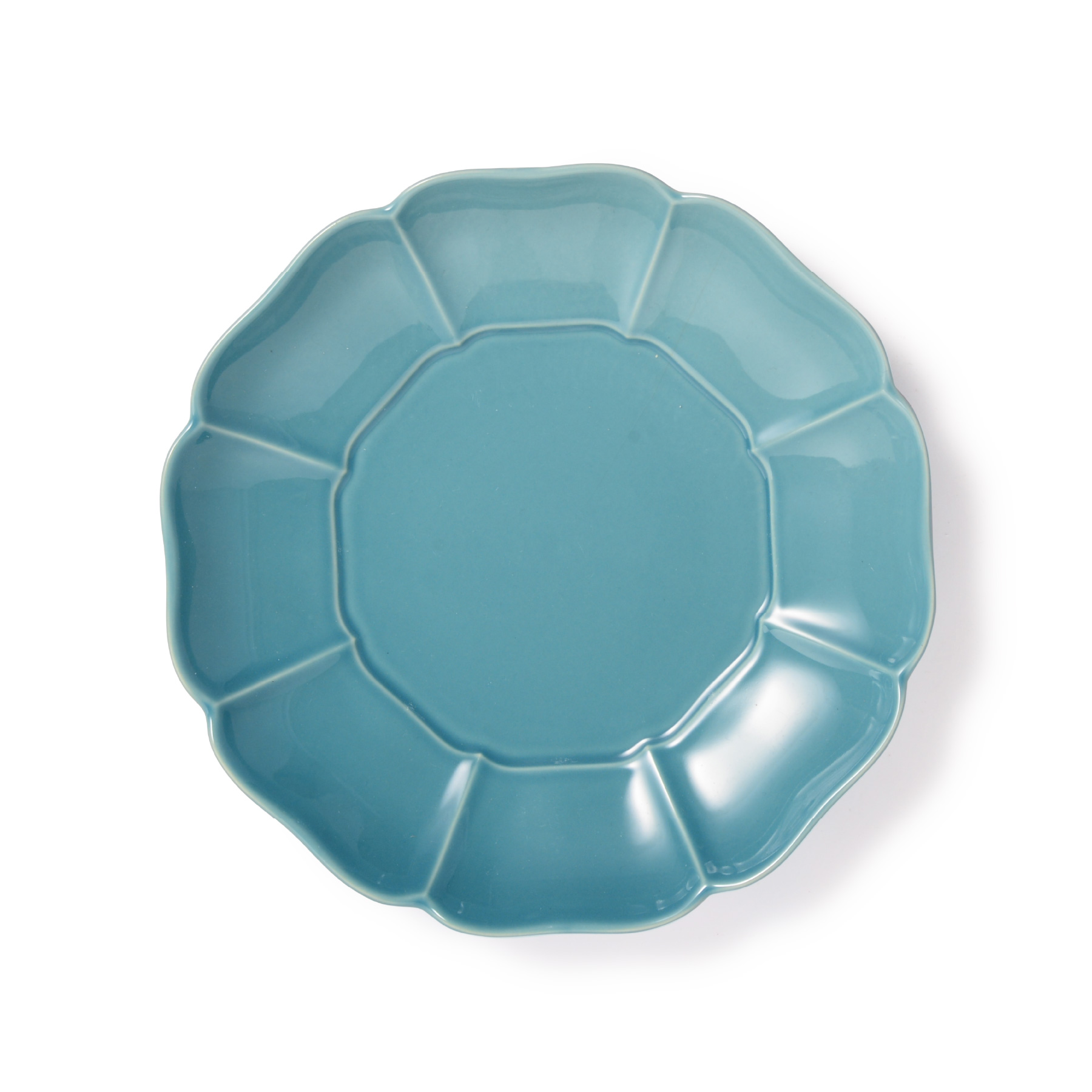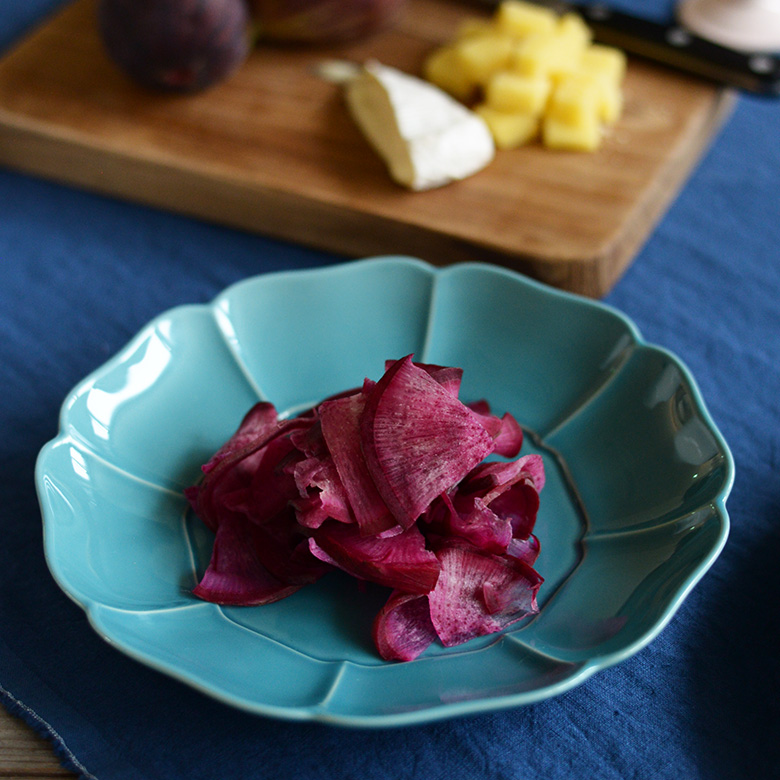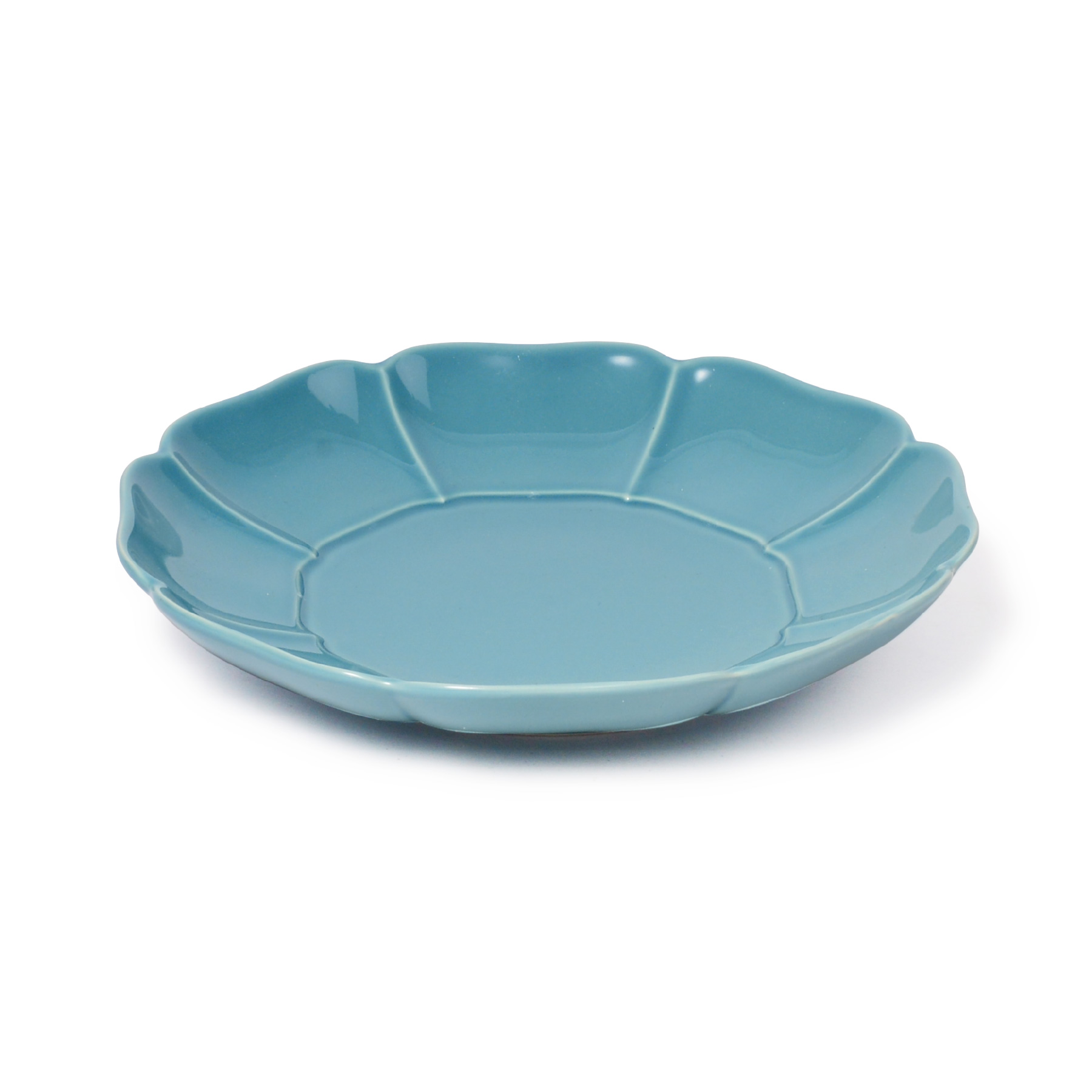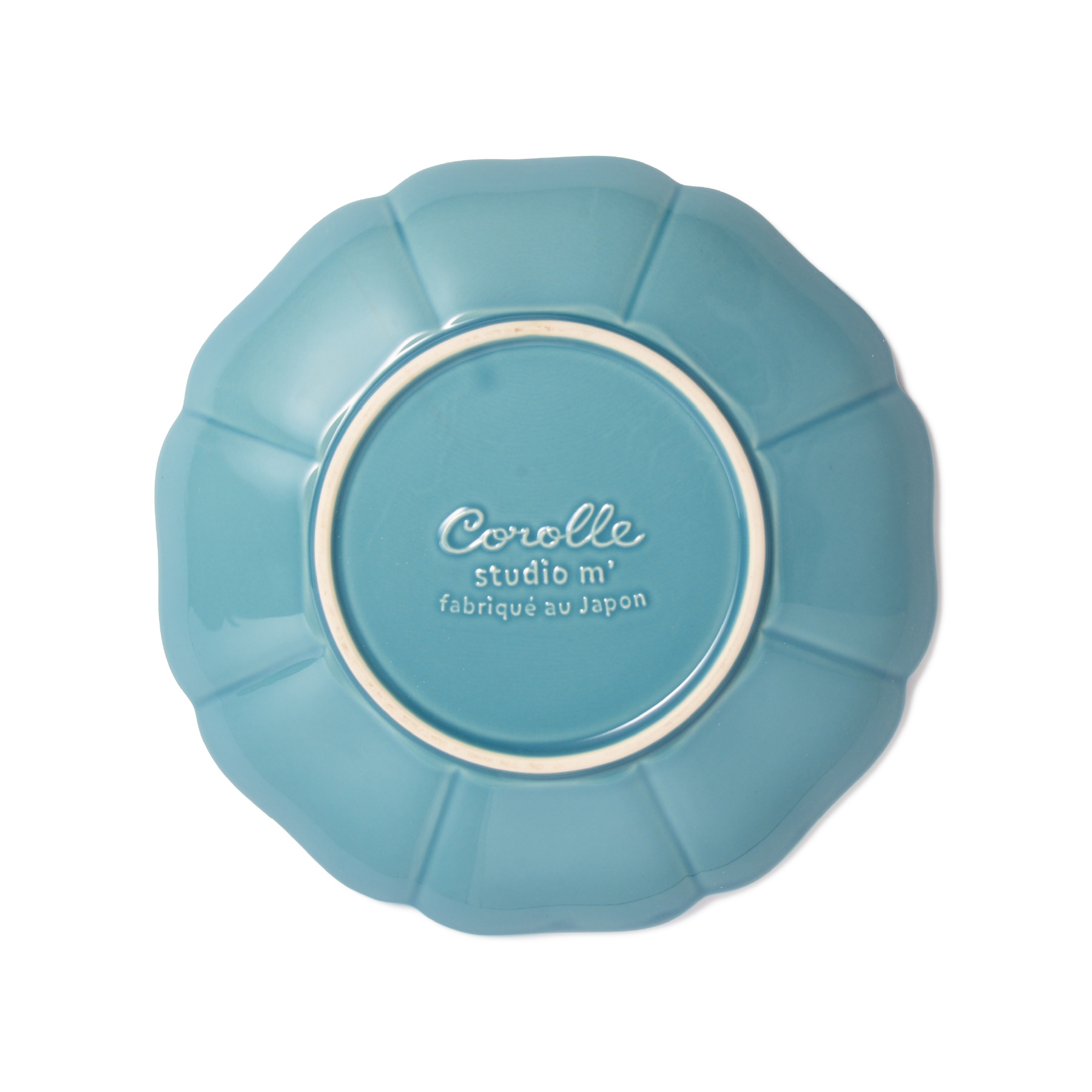Corolle 7sun plate turquoise
Description
"Corolle" in French means a floral crown, so "Corolle" series is flower-shaped tableware with elegance and dignify. It features the sharp and delicate form and the sophisticated color scheme. The petal parts turn a bit upright at a certain point, which gives a soft and roundish feeling as if those petals were embracing the arranged food. [21 flower-shaped plate] is great for serving main dishes such as poached fish. [15 flower-shaped plate] is a plate to share and recommended for getting several pieces each for your family members and guests, while [11 flower-shaped bowl] is nice for arranging side dishes as one serving such as vinegared or tossed salad in Japanese style and even dessert. Three color options: [White] features cleanness and matteness with a smooth touch/ [Purple] is grayish, subdued and translucent with several shades of color, which results in its clearer outline/ [Blue] is breathtakingly vivid and can accentuate the table setting. Those three colors will go well with Japanese, western and Asian food.
Features
Color Shade Variations
Each piece has individual color shade variations. Affected by glazes and natural firing conditions such as changes in temperature, humidity and other climate elements and also how to receive the fire in the kiln chamber, each piece has own expression. It is really difficult to make the completed ware exactly same in color by firing and glazing even when the same materials are used. 100 pieces show 100 kinds of expressions, as it were.
Color Irregularities
There are color irregularities of applying a glaze or slip, which are different from part to part in a piece of ware. For example, some parts are glazed thinly or thickly depending on the shape of the ware. That leads to part-to-part subtle differences in appearance of the clay in a piece of ware.
Glaze or Slip Drips
The glaze or slip may look like dripping. There is unevenness of a glaze or slip when they are applied to ware by hand. There also appear glaze drips or slip drips, which are caused by the glaze or slip flows during firing.
Iron in Powder
Iron in powder may be seen clearly on the surface. Pottery (earthenware) is made from earth, which contains iron. After firing green ware, iron appears on the surface in the form of black dots. Red or black earthen clay contains much more iron, and as a result, not a little iron in powder may appear on the surface of tableware items made from this type of clay.
Microwave Safe
A microwave oven heats or cooks food very quickly using short electromagnetic waves, namely, microwaves. In most cases, the microwaves heat the water content of the food. However, in some cases, the microwaves concentrate on the carbonized (burnt) parts of the food, causing the temperature to rise higher than the other parts. For example, the microwaves concentrated on the carbonized (burnt) parts of stir-fried vegetables can create a large temperature difference in /on the tableware item, which may cause breakage. In addition to water content, oil content is also heated. The oil has a higher boiling point than the water, so it heats up at a higher temperature, creating a very large temperature difference between the parts that contain oil and the parts that do not, which can cause breakage.
・Never soak hot tableware in water or place it on the cold kitchen counter. Avoid rapidly heating frozen foods or putting [the cold tableware just taken out of the refrigerator] in the microwave. A rapid change in temperature will lead to “crazing” (chaps) or breakage.
※The products with gold or silver paintings, or applied with particular glazes are not microwave safe. We put a “Do Not Microwave” sticker on those items, so please confirm it.
※Accessories etc., made of other materials are excluded from microwave safe items.
Not Oven Safe
Dishwasher Safe
As for the products without the "Not Dishwasher Safe" stickers, please make sure to use them keeping the below matters in mind.
※If tableware items collide each other in the dishwasher, they will get broken.
※Most ceramic items absorb water. Even if the surface looks dry, there may still be some water in the tableware, which may cause your tableware to get moldy or smelly. So, please take it out of the dishwasher immediately after use, and dry thoroughly in a place where it can be exposed to the outside air.
made in JAPAN










